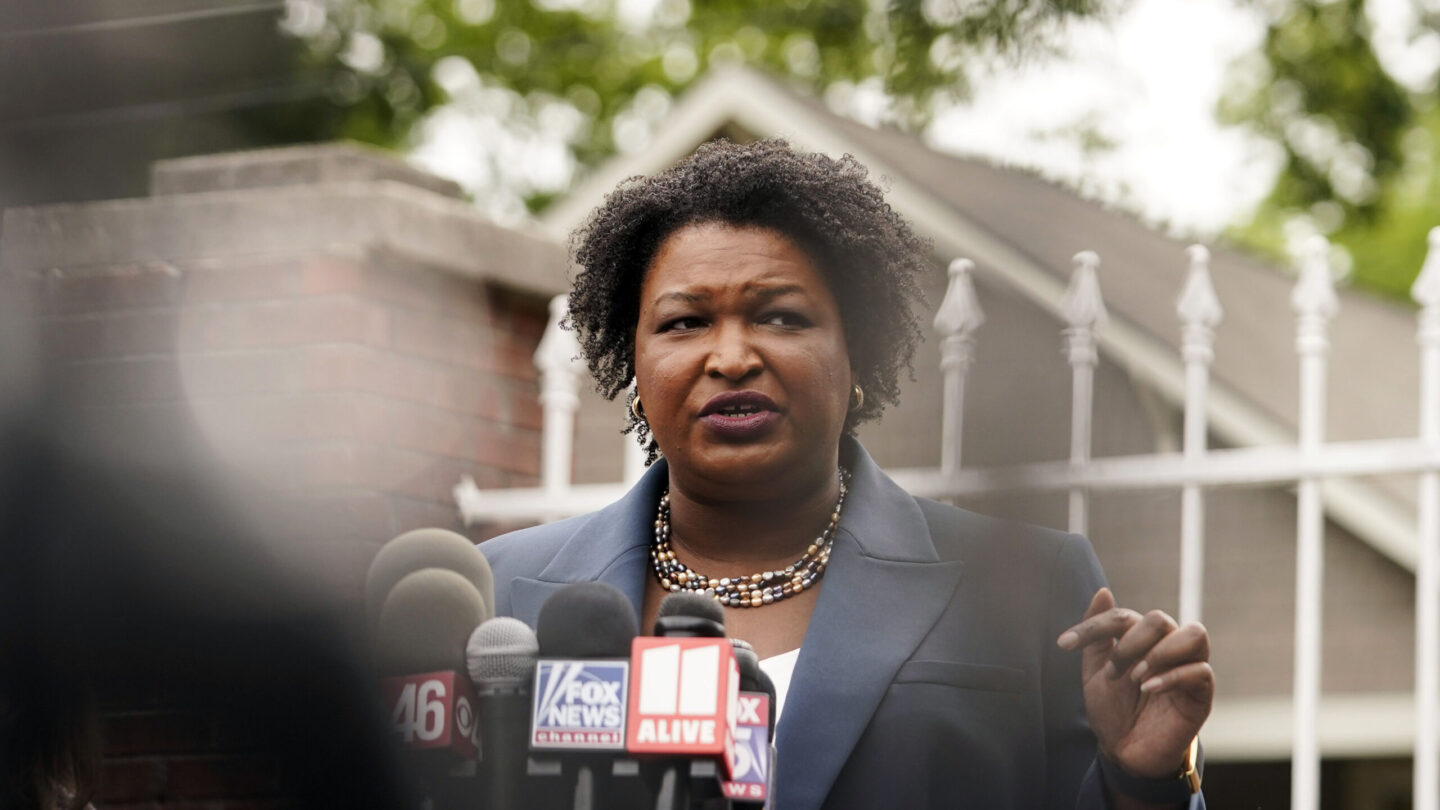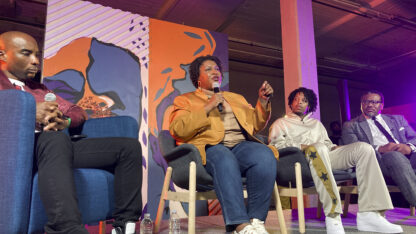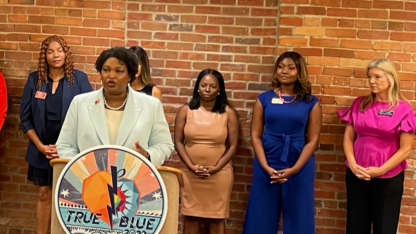A federal judge on Friday found that Georgia election practices challenged by a group associated with Democrat Stacey Abrams do not violate the constitutional rights of voters, ruling in favor of the state on all remaining issues in a lawsuit filed nearly four years ago.
“Although Georgia’s election system is not perfect, the challenged practices violate neither the constitution nor the VRA,” U.S. District Judge Steve Jones in Atlanta wrote, referring to the Voting Rights Act of 1965. He detailed his reasoning in a 288-page order.
The lawsuit was filed in November 2018, just weeks after Abrams narrowly lost the governor’s race to Republican Brian Kemp. Throughout that contest, Abrams had accused Kemp, then secretary of state, of using his position as the state’s top elections official to promote voter suppression. Kemp vehemently denied the allegations.
Kemp on Friday applauded the ruling, calling it a loss for Abrams.
“Judge Jones’ ruling exposes this legal effort for what it really is: a tool wielded by a politician hoping to wrongfully weaponize the legal system to further her own political goals,” Kemp said in a statement.
Abrams and Fair Fight expressed disappointment in the decision but said the lawsuit helped bring about positive change in Georgia.
“While the Court’s actions are not the preferred outcome, the conduct of this trial and preceding cases and legislative actions represent a hard-won victory for voters who endured long lines, burdensome date of birth requirements and exact match laws that disproportionately impact Black and Brown voters,” Abrams said in a statement.
The trial began in mid-April, unfolding while Georgia’s primary elections were underway. Those contests set the stage for a rematch between Kemp and Abrams, who captured their parties’ gubernatorial nominations for November’s general election.
Nearly five dozen witnesses were called over the course of 21 trial days that stretched across more than two months. It was a bench trial, meaning there was no jury and the verdict was up to Jones alone.
Abrams’ Fair Fight Action organization filed the lawsuit along with Care in Action, a nonprofit that advocates for domestic workers. Several churches later joined as plaintiffs. It was originally extremely broad and called for a significant overhaul of Georgia’s election system.
By the time it got to trial, the scope had narrowed significantly after some allegations were resolved by changes in state law and others were dismissed by the court.
“This is a voting rights case that resulted in wins and losses for all parties over the course of the litigation and culminated in what is believed to have been the longest voting rights bench trial in the history of the Northern District of Georgia,” Jones wrote.
The issues that remained and which were discussed at length during the trial had to do with the “exact match” policy, the statewide voter registration list and the process for in-person cancellation of absentee ballots. Fair Fight alleged that the negative effects of these policies are disproportionately felt by people of color and new citizens and amount to violations of the U.S. Constitution and the Voting Rights Act of 1965.
Georgia officials have created a landscape where it’s “harder to register, harder to stay registered and ultimately harder to vote,” Allegra Lawrence-Hardy, an attorney for Fair Fight and the other plaintiffs, said during her closing argument in late June. The barriers to voting aren’t caused by inevitable human errors but instead result from “choices designed to keep certain people from voting,” she said.
She highlighted testimony from voters who had trouble registering or casting their ballots, voters who shared their stories because they wanted the court to understand what they faced.
Josh Belinfante, a lawyer for state election officials, said in his closing that Georgia’s elections are constitutional and don’t violate the Voting Rights Act. Georgia’s automatic voter registration policy and significant recent increases in African American voter registration are not the signs of a state that is suppressing voters, he argued.
While Fair Fight collected stories from more than 3,000 voters, they found very few who were unable to cast a ballot and none during the 2020 election, Belinfante noted. Instead, he said, the evidence showed problems were generally resolved quickly once state officials were contacted.
Fair Fight’s goal was to get Democrats elected and to make Georgia a blue state, and the organization used a false narrative of voter suppression to motivate people to turn out for its cause, Belinfante said.
“You have to decide has the case matched the rhetoric,” Belinfante told Jones. “The answer is no.”
The plaintiffs argued state officials provided inadequate training for county election officials on canceling absentee ballots, causing significant problems for voters who tried to vote in person after having requested an absentee ballot.
The plaintiffs also challenged two aspects of the state’s “exact match” policy for voter registration applications. Plaintiffs say problems arise for voters if the information on their applications doesn’t exactly match that in driver’s license or Social Security databases or if new U.S. citizens’ information hasn’t been updated in the driver’s license database.
Finally, the plaintiffs said state officials mismanaged the voter registration database. They cited alleged problems with three list-maintenance processes: the cancelation of registration if a person is convicted of a felony, the merger of records believed to be duplicates, and the cancelation of voters believed to be dead.
Jones noted that while the plaintiffs called witnesses who testified about struggles to cast their ballots because of the practices at issue, most were able to vote in the end.









